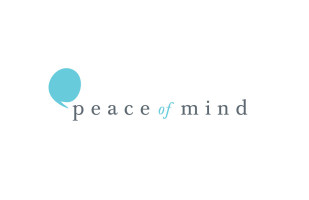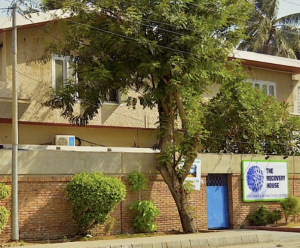
In June of 2018, the idea was born to bring an OCD training program to the Recovery House in Karachi, Pakistan. Shaheen Ahmed, who works closely with the Recovery House, built the connection between the rehabilitation institute in Karach i and the International OCD Foundation. Being from Pakistan herself, Ms. Ahmed is well aware of the scarcity of services and cites that “lack of funds, knowledge about mental illness and denial of the same, and most of all the stigma” as some of the contributing factors holding back efforts to improve treatment there. When the staff in Karachi asked for help regarding treating patients with OCD, Ms. Ahmed used her connections in the U.S. to get in contact with Dr. Monnica Williams. As a member of the IOCDF scientific advisory board and co-chair of the Diversity Council, Dr. Williams worked with Ms. Ahmed to come up with a plan to train several Karachi therapists in order to treat the Recovery House patients.
i and the International OCD Foundation. Being from Pakistan herself, Ms. Ahmed is well aware of the scarcity of services and cites that “lack of funds, knowledge about mental illness and denial of the same, and most of all the stigma” as some of the contributing factors holding back efforts to improve treatment there. When the staff in Karachi asked for help regarding treating patients with OCD, Ms. Ahmed used her connections in the U.S. to get in contact with Dr. Monnica Williams. As a member of the IOCDF scientific advisory board and co-chair of the Diversity Council, Dr. Williams worked with Ms. Ahmed to come up with a plan to train several Karachi therapists in order to treat the Recovery House patients.
At the annual IOCDF conference this year, Dr. Williams described to the Diversity Council the need to help untreated patients in Pakistan. At the meeting was Dr. Elizabeth McIngvale who is on the board of the IOCDF and is the founder of the Peace of Mind Foundation. According to Dr. McIngvale, the foundation’s main goal is “to increase access of care to effective, evidence-based interventions.” This aligned with what Shaheen Ahmed hoped to accomplish as well as with Dr. McIngvale’s knowledge and passion to increase care in the many places isolated from OCD treatment across the globe. The Peace of Mind Foundation provided the grant to make a training program possible. Dr. Williams is enthusiastic about the partnership and the grant: “It was incredibly exciting and very generous of them. I want to make sure people know what great work the Peace of Mind Foundation is doing.”
The online program set-up to train the Karachi clinicians is comprised of two parts. The training itself is twelve, one-hour sessions and will include a wide range of information on OCD and its treatment. The sessions include collecting patient histories, administering measures, conducting exposures, and offering medication options. The second portion includes weekly group supervision of the participants over the course of six months. There were a number of logistics to consider, from language issues, to time zones, to practical matters, such as access to required manuals. Three clinicians from the Recovery House were chosen to participate in this first training, which will be conducted by Dr. Williams and Dr. James DiLoreto, who are both therapists that treat OCD at the New England OCD Institute. Dr. Williams, who will be leading the effort, is board-certified in behavioral and cognitive therapies and is part of faculty at the University of Connecticut where she conducts cross-cultural OCD research. In order to take part in this opportunity, the trainees had to meet certain requirements as well as bring their own OCD patient cases to work through during the training. At the completion of the program, clinicians will receive a certificate from the International OCD Foundation. Completion is contingent upon participating in all of the sessions and successfully treating two patients with OCD.
Despite the amount of research on OCD symptoms and treatment, there is a lack of specific information for many ethnic groups. OCD, along with many other mental disorders, has different presentations and effective treatments specific to the patient’s cultural background. Shaheen Ahmed acknowledges this lack of information for diverse groups and is excited about the training: “When you apply practices in a different environment, culture, support system, etc., the outcomes are different.” This OCD training program is a huge step in determining how well-researched treatments apply to other populations, cultures, and ethnoracial groups and will also help us understand the best way to treat a wider range of people suffering with OCD. By training clinicians in Karachi, Dr. Williams is hopeful that those clinicians can go on to train others as well, making treatment more accessible to the Pakistani people. The IOCDF offers training in the United States thorough the Behavioral Therapy Training Institute (BTTI), and is working to expand BTTI’s globally. Dr. McIngvale is especially hopeful that with the success of this online training in Pakistan, the opportunity to help others in underserved countries treat mental illness will become a real possibility: “If we can show that this is an effective training intervention, imagine the global impact that we can have. We’re not just talking about professionals in a mental health clinic that get training, we’re talking about ways that we could train education systems, students, future professionals, future mental health professionals in an easily accessible format which is low cost, and I think that’s what is key.” Regardless of the global implications, this training will most definitely be providing a much-needed treatment to Pakistani patients now and in the future. We are so grateful to the Peace of Mind Foundation for making this a possibility.
Article by Emma Turner
